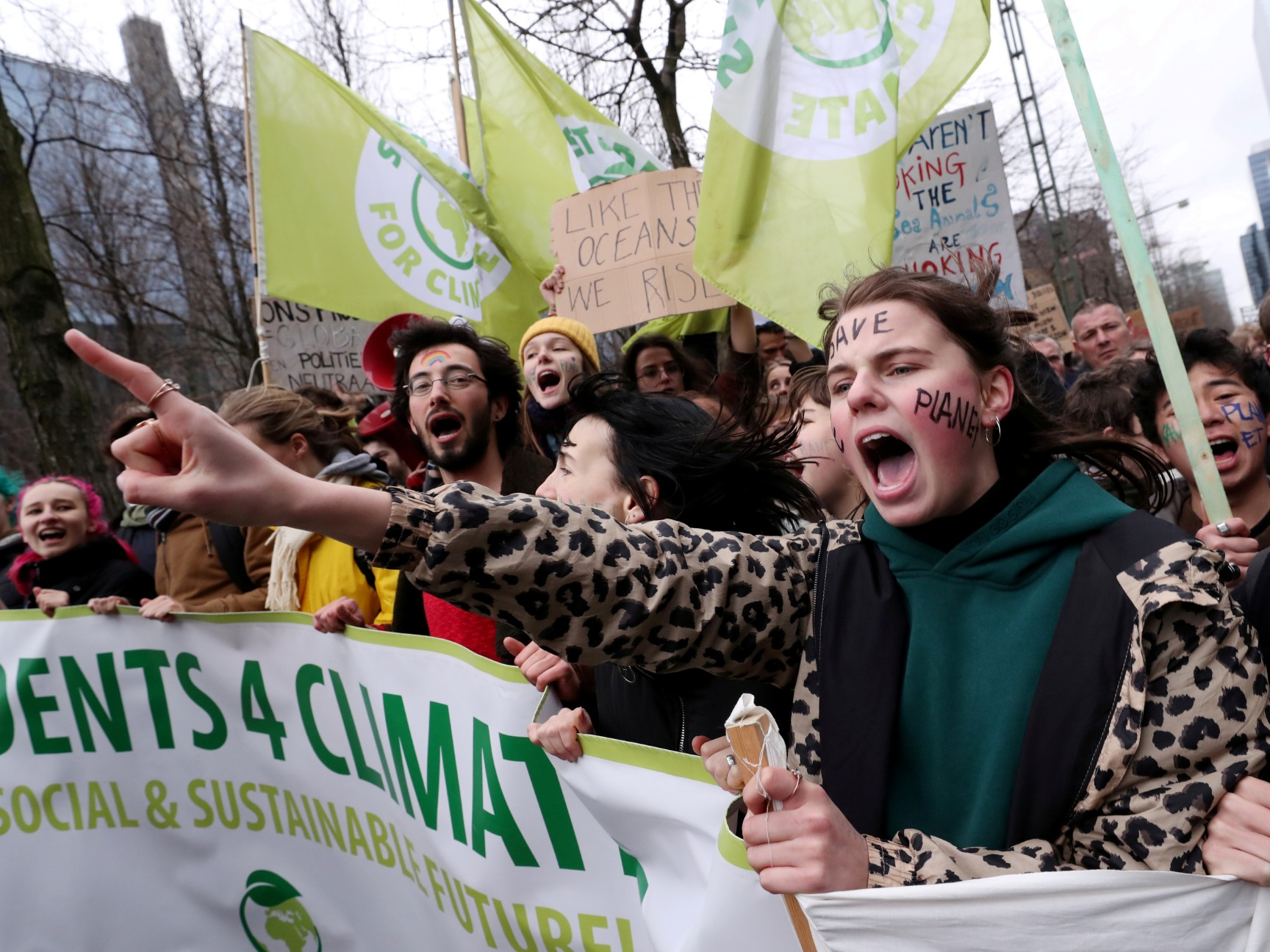- Most people worldwide believe climate change is happening, and humans are at least somewhat responsible.
- Countries like the Philippines and Vietnam expect climate change to greatly impact their lives, while Europeans are less likely to feel this way.
- People across the world think that climate change could lead to economic damage, sea level rise, and displacement.
- Visit Insider’s homepage for more stories.
What does your country really think about climate change?
A new survey by YouGov tallied up answers 30,000 people in 28 countries and regions and found that attitudes vary greatly based on where you live.
For example, seven out of 10 Indians believe that climate change is mostly caused by mankind – but only 35% of Norwegians hold that same view. Nearly one in 10 Americans believe the climate is changing, but won’t put the blame on humans. (Spoiler alert: Climate change is happening because of humans.)
A majority of people in all surveyed countries believe international bodies and national governments are responsible for the climate catastrophe we are in today. Individual people – not so much.. When asked which countries in particular are the worst culprits, most pointed to China and the US.
A majority of those surveyed also see some of the major damage from climate change hitting the economy, cities taken over by sea level rise, displacement and small wars, with some saying it could lead to a world war or extinction. Europeans and Americans are less convinced that climate change will start a world war, or that humans will go extinct.
Here's a breakdown of the climate beliefs YouGov discovered across the world.
INDIA: 71% of people polled believe that the climate is changing mostly due to humans, with another 23% blaming climate change at least partially on human activity.
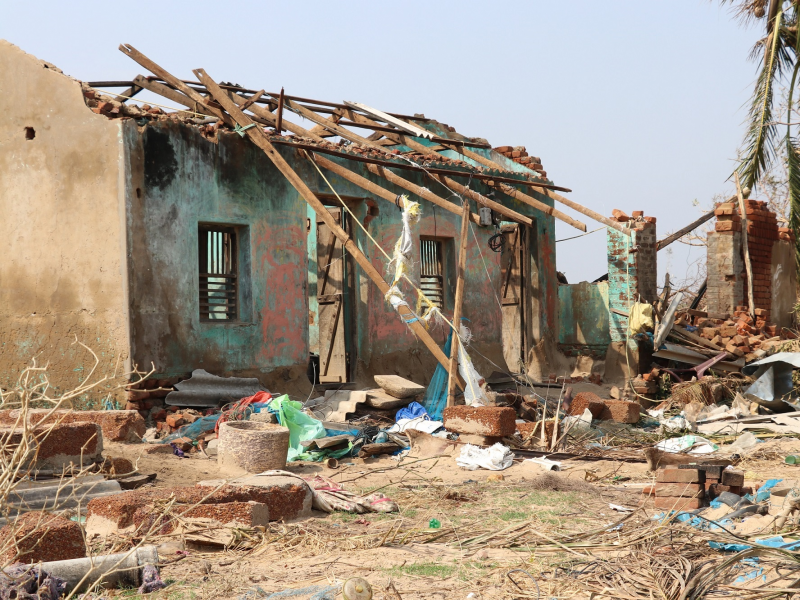
70% of Indians polled think that climate change will have a great deal of impact on their lives. However, only 61% think the worst impacts of climate change are avoidable with a drastic change in shift, and 22% believe it's already too late.
India experienced two major cyclones already in the first six months of 2019, and 2.2 million people were displaced during that timeframe due to a climate disaster.
THAILAND: Most Thai people believe climate change is happening due to human action at 69% believing climate change is mostly humanity's fault. Another 27% partially accredit climate change to humans.
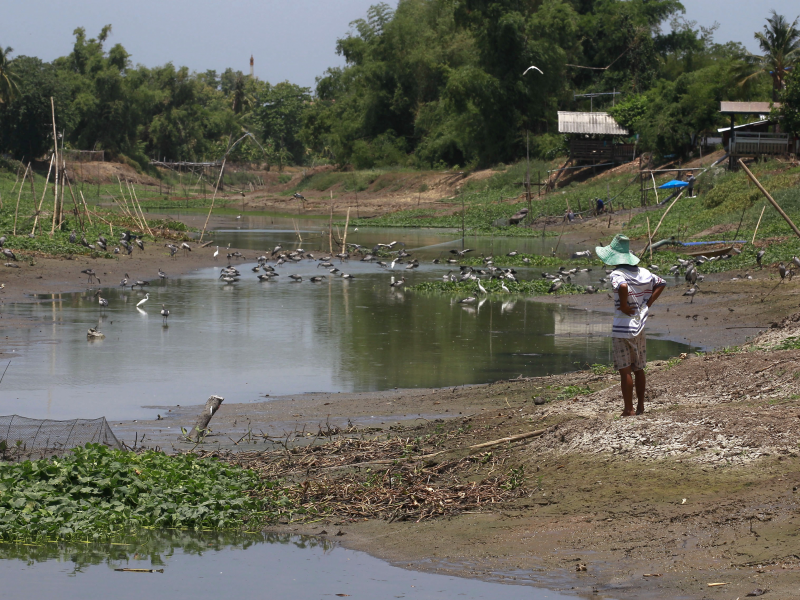
Nearly three-quarters of Thai respond ees believe that climate change will have a great deal of impact on their lives, and 18% believe it's too late to avoid the worst of climate change. 64% believe climate change can be mitigated with drastic change.
Thailand is especially vulnerable to climate change due to long coastlines, a fragile agriculture system and susceptibility to extreme weather.
SPAIN: 69% of people believe humans are to blame for climate change, and another 27% partially blame humans.
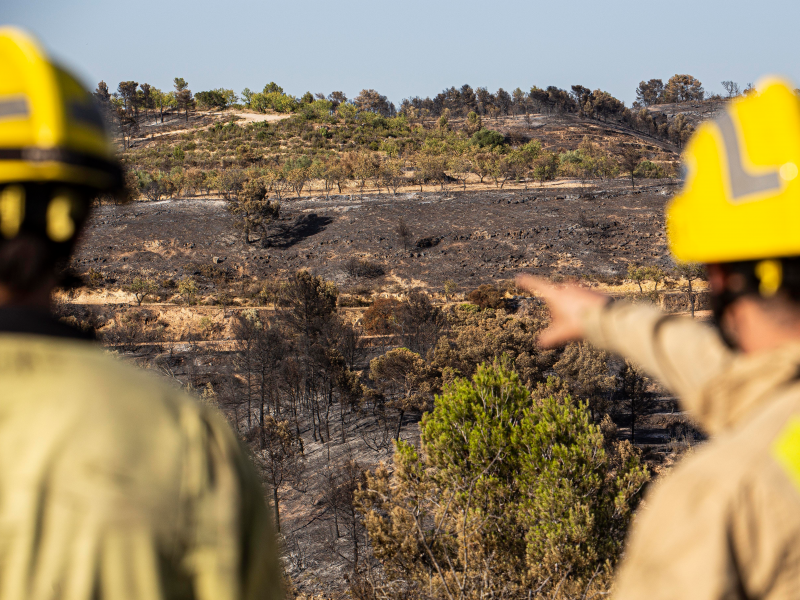
Only 32% of Spaniards polled believed their lives would be impacted greatly by climate change, and 42% believed they'd see a fair amount. Spaniards were among the most optimistic responders, with 82% believing there's still time to take drastic action to avoid the worst of climate change.
Summers are already getting longer and hotter in Spain, and wildfires have impacted thousands of hectares of land across the country.
INDONESIA: 69% of Indonesians place the majority of blame for climate change on humans, with about a quarter of respondents placing only some of the blame on humans.
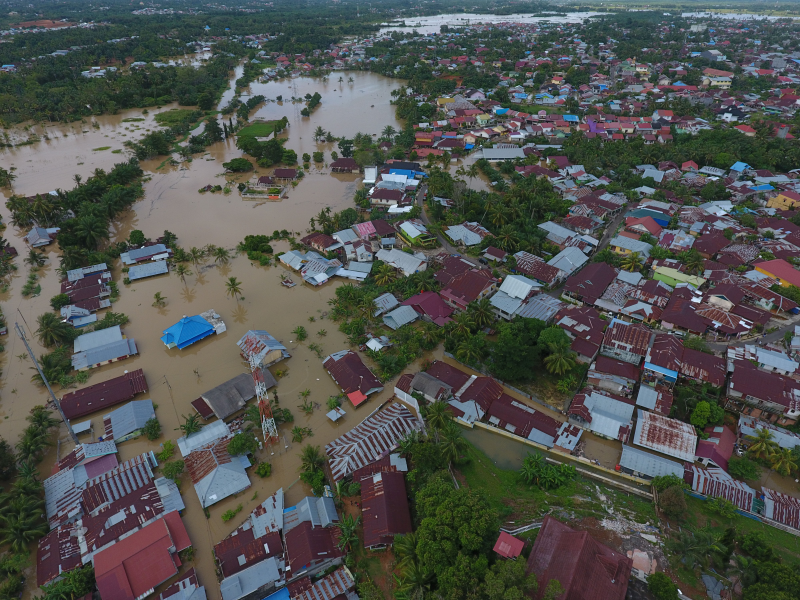
Indonesian respondents were split basically down the middle when it comes to climate change impacting them in a great deal or a fair amount. Over 70% of respondents believe drastic changes can be made to avoid the worst of climate change, and nearly 20% believe the worst of climate change will be avoided with the steps currently in place.
Indonesia was the fourth largest emitter of greenhouse gases in 2015 in the world, and is vulnerable to potentially deadly flooding.
ITALY: Two-thirds of Italians believe climate change is mostly man-made, with around 30% only giving humans partial blame.

Less than a third of Italians responded that climate change will have a great deal of impact on their lives, while around half think there will be a fair amount. Nearly 80% think the worst outcomes of climate change could be avoided by drastic measures.
As a result of climate change, Italy has seen a 57% drop in olive harvest as of March as the Mediterranean experienced erratic weather events like early frosts and droughts.
VIETNAM: 64% of Vietnamese respondents believe climate change is mostly due to human actions, while 32% only blame humans partially.
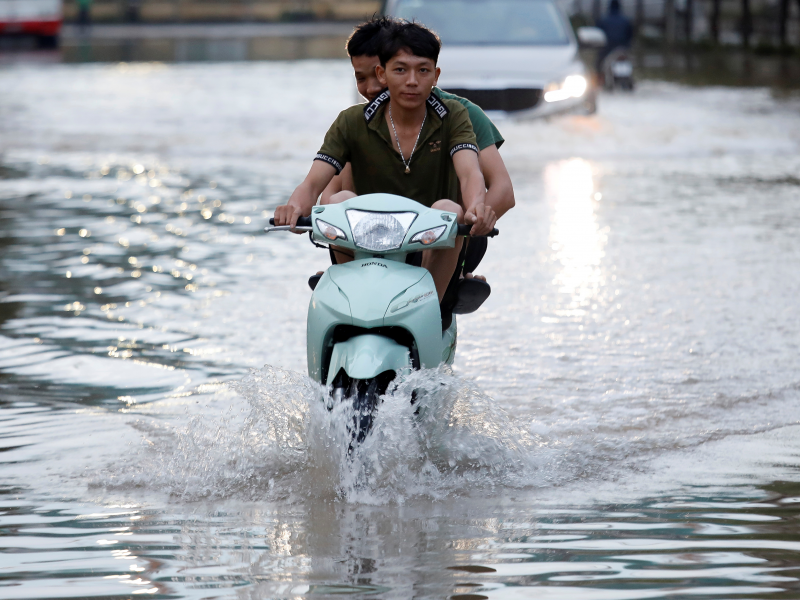
Nearly three-quarters of Vietnamese respondents feel as though climate change will have a great impact on their life. Around the same percentage believe that climate change's worst impacts can be avoided by drastic change in future steps.
Vietnam is prone to flooding, and a recent study predicts that 12 million people could be displaced because of flooding in the Mekong Delta within half a century.
PHILIPPINES: Out of those polled, 62% of Filipino respondents believe humans are the main cause of climate change, with around 30% of respondents placing partial blame.
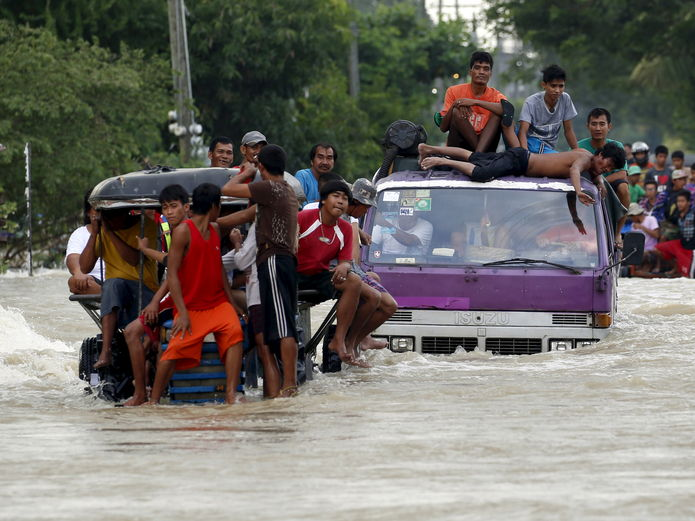
Respondents from the Philippines had the highest amount of responses noting that climate change would have a great deal of impact on their lives at 75%. Only 63% believe the worst of climate change can be avoided with drastic measures.
Nearly 300,000 people in the Philippines were evacuated due to flooding and landslides in the first six months of 2019.
SINGAPORE: 54% of respondents from Singapore believe climate change is largely man-made, and around 40% assign partial blame to humans.
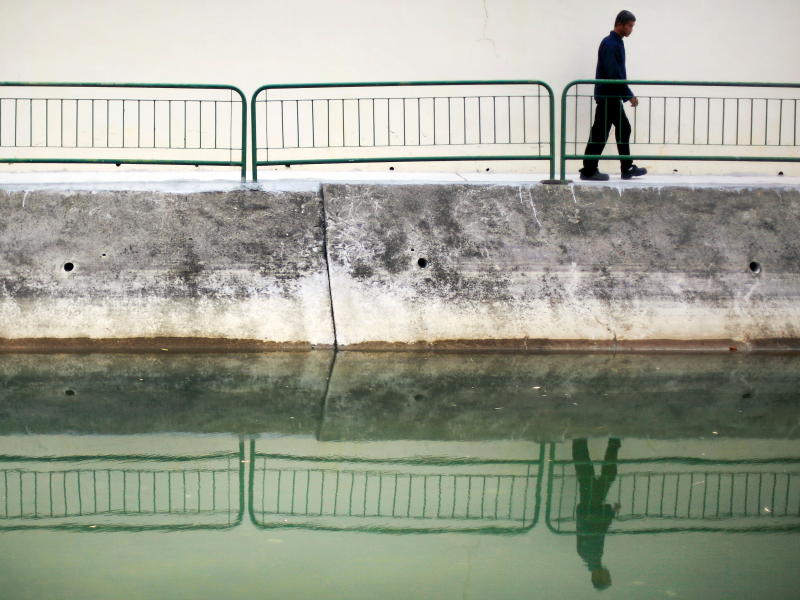
More respondents from Singapore believe that climate change will have a fair amount of impact on their lives at 47% than the 41% that believe there will be a great impact. Around three-quarters believe the worst climate change can be avoided with drastic changes made in action.
Singapore is largely at risk of sea level rise - most of the land is less than 15 meters above sea level, with around a third of Singapore less than five meters above sea level.
TAIWAN: 53% of Taiwanese respondents believe climate change can mostly be blamed on humans — 42% only assign partial blame.
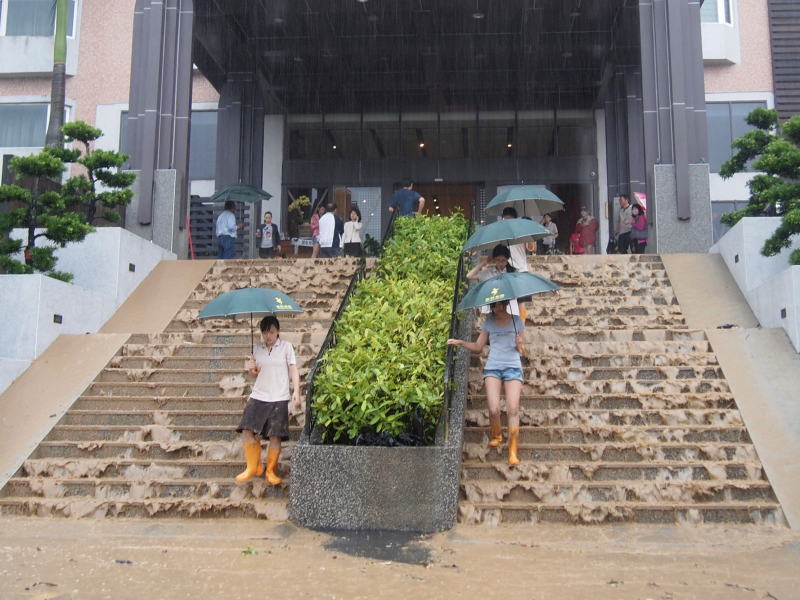
Over half of Taiwanese respondents believe there will be a fair impact on their lives as a result of climate change, compared to 38% who believe there will be a great impact. Over three-quarters of respondents believe the worst of climate change can be avoided by ramping up action, but 13% believe it's already too late.
Taiwan is experiencing sea level rise at a more rapid pace than the rest of the world, and is one of thetop 25 carbon dioxide emitting countries in the world.
QATAR: Around half of respondents from Qatar believe humans are mostly to blame for climate change, but 41% still only hold humans partially responsible.

Almost all of Qatari respondents believe there wil be some kind of impact on their lives due to climate change - 65 saying it will have a great deal, and 32 saying it will have a fair impact. 80% believe there is still time to take drastic measures to avoid the worst outcomes of climate change.
In Qatar and other areas along the Persian Gulf, the future climate could be so hot it's unlivable. Conditions in the region, like shallow water and intense sun, make it "a specific regional hotspot where climate change, in absence of significant mitigation, is likely to severely impact human habitability in the future," according to researchers at MIT.
KUWAIT: Half of the respondents of Kuwait see climate change as largely human-caused, with 34% attributing it only partially to humans.
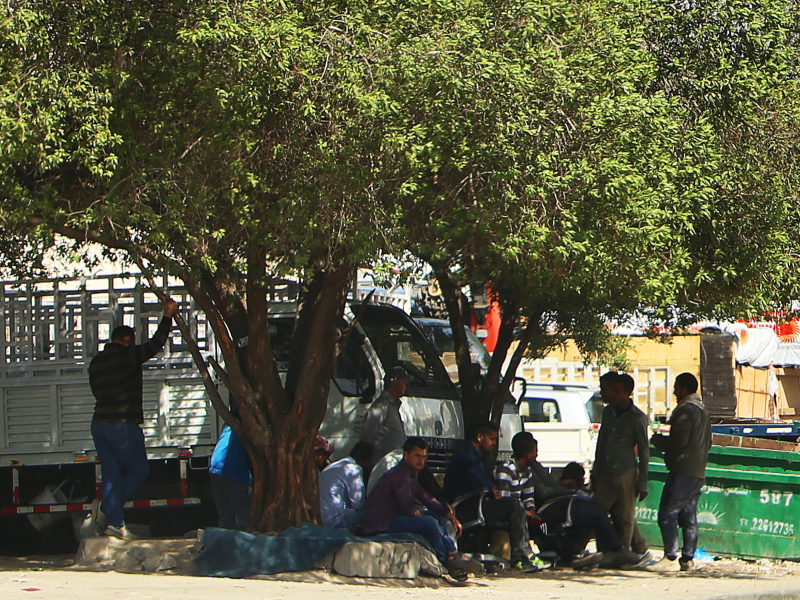
55% of respondents from Kuwait think climate change will have a great deal of impact on their lives, and 32% believe there will be a fair amount. Less than 70% believe the worst of climate change can be avoided with drastic changes, but 13% believe the worst wll be avoided with the steps already taken.
Kuwait is one of the hottest countries in the world, and the population is largely built up of migrant workers. Because of how hot the region gets, there are already laws in place to keep people from working outside from 12 PM to 4PM, but that isn't always followed. The Guardian spotted workers on site doing labor at 12 PM in 116°F heat in 2017.
UNITED ARAB EMIRATES: Over half of the respondents from United Arab Emirates believe climate change is mostly man-made, with about a third giving partial blame to humans. 6% say humans have nothing to do with the climate changing at all.
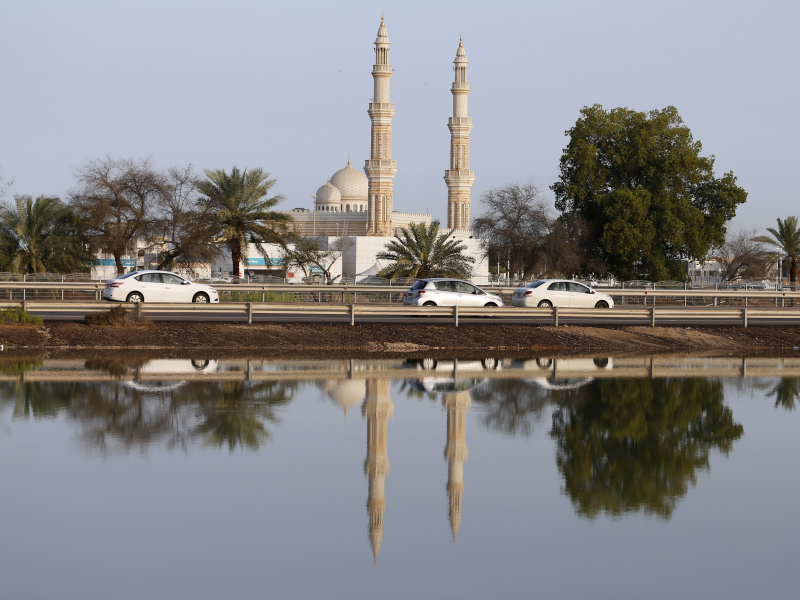
Most of UAE respondents believe their lives will be impacted by climate change with 56% believing it will impact them a great amount and 32% believing it will cause a fair amount of impact. Only 63%of respondents said climate change could be mitigated with drastic action, while 16% say it's too late and 14% say everything will be fine with the steps already taken.
Almost all of the infrastructure in the UAE and 85% of the population is located within several meters of sea level in low-lying coastal areas - a high risk for sea level rise. Additionally, the country is located by the Tropic of Cancer, meaning it can get incredibly warm, and in the coastal regions reach humidity levels of 90% in the summer and fall.
GREAT BRITAIN: Over half of respondents from the UK see humans as the main cause for climate change, with another 37% assigning partial blame to human activity.

Only 17% of respondents in the UK think they will deal with a great amount of impact from climate change, and 41% believe there will be a fair amount of impact. Two-thirds of the respondents think drastic change in policy could help avoid the worst of climate change, while a bit more than 10% believe there it's either too late or no change is needed to avoid the worst, respectively.
The UK experienced uncharacteristically warm weather this summer, and a new report by the Guardian emphasizes how their food supply could be threatened by climate crises in the future.
HONG KONG: Half of the respondents from Hong Kong blame humans for climate change — around 45% blame humans as one of several sources.

Only a quarter of respondents from Hong Kong think climate change will impact them a great deal, whereas 56% believe it'll impact them a fair amount. Nearly three-quarters say climate change's worst impacts can be mitigated by drastic change, but 15% believe it's too late.
Climate change will make Hong Kong hotter, wetter, and more prone to rainfall variability, meaning the area can experience both intense storms and rain and then later be hit by scarcity and droughts.
FINLAND: Close to half of Finnish respondents believe climate change is largely man-made, and 38% put partial blame on humanity for climate change.
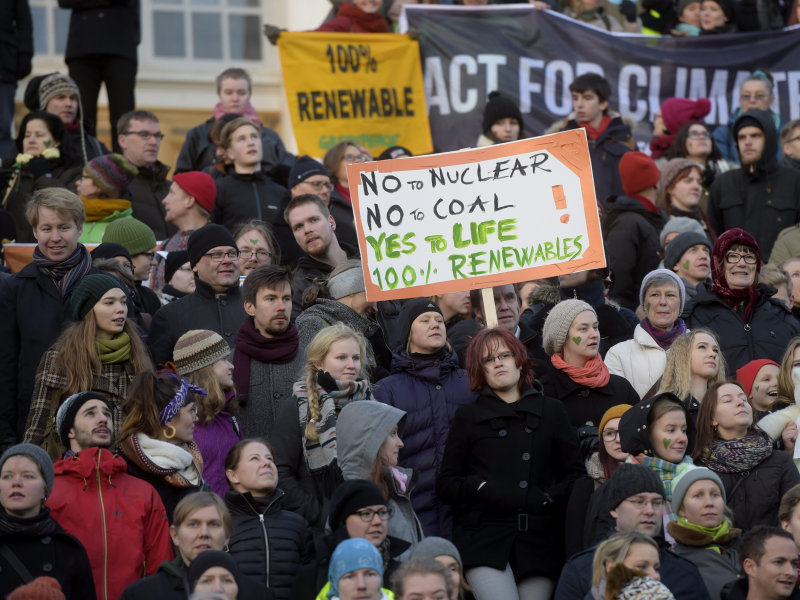
A mere 14% of Fins believe climate change will cause a great impact on their lives; 34% believe there will be a fair amount. Only 56% of Finnish respondents believe climate change can be mitigated with drastic changes in policy, whereas 21% believe the worst of climate change can be avoided by measures already in place.
Some major climate change impacts that will hit Finland include snow cover and soil frost reduction, temperature increase, and sea level rise and ice melt in the Baltic Sea.
GERMANY: Close to half of Germans believe humans are mainly responsible for climate change, while 36% put partial responsibility on human action.
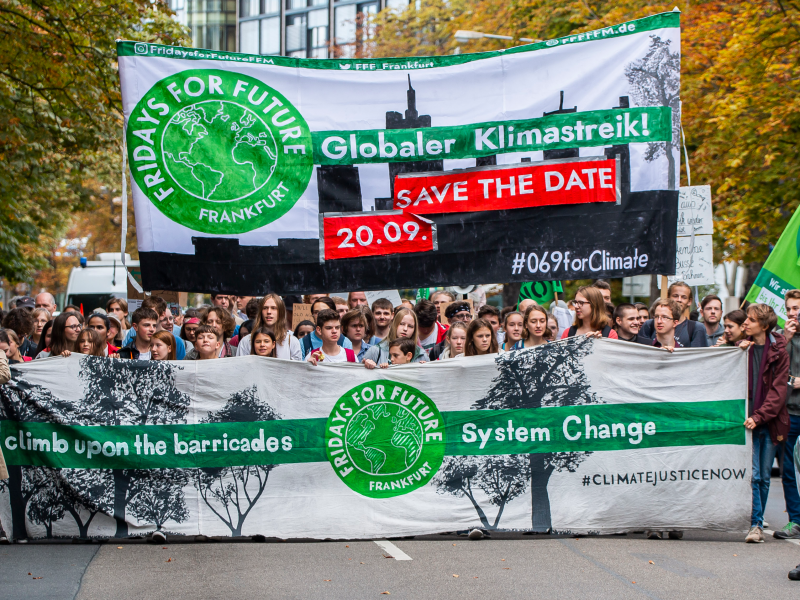
Only 16% of German respondents believe climate change will have a great impact on their lives, and less than 40% believe there will be a fair amount of impact on their lives. 57% of Germans think that drastic change in mitigation steps could hinder the worst impacts of climate change, but the amount of people who believe it's too late and current policy is enough sits at around 14% each.
Global warming impacts Germany from warming temperatures and wildfires in the Alps as well as sea level rise and increased storm surge height possibly leading to flooding across the country on the North Sea and Baltic Sea coasts.
FRANCE: 48% of French respondents believe climate change is mostly human's fault, with 37% believing part of the blame is on humans, but not all of it.
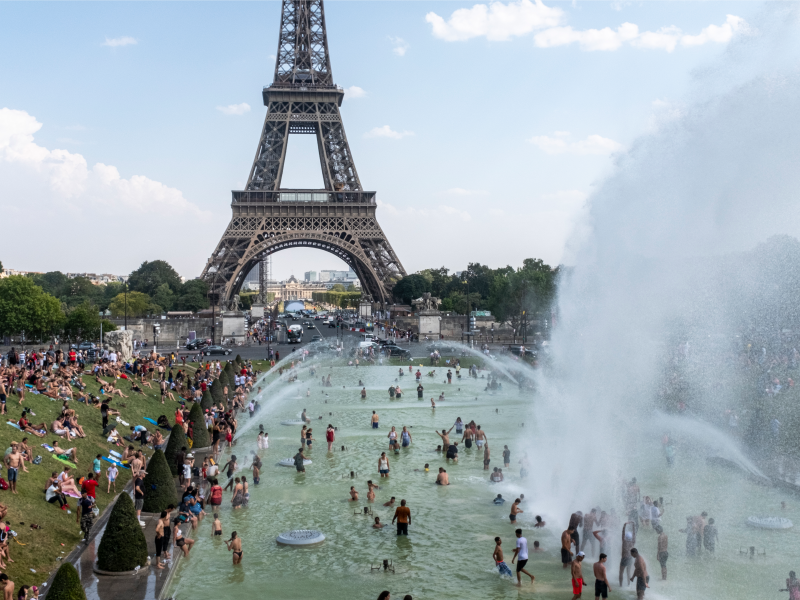
Around a quarter of the French respondents believe climate change will impact them greatly, with 44% responding that climate change will impact them fairly. Nearly 60% believe that drastic measures could damper the worst effects of climate change, but 1 in 5 believe that it's too late.
The record-setting heat wave that crossed through Europe killed 1,500 people in France this summer, and scientists have said this heat would've likely been impossible without the push of climate change.
MALAYSIA: 48% of Malaysian respondents believe climate change is largely man-made; nearly the same amount at 43 believe it's only partly to do with human activity.
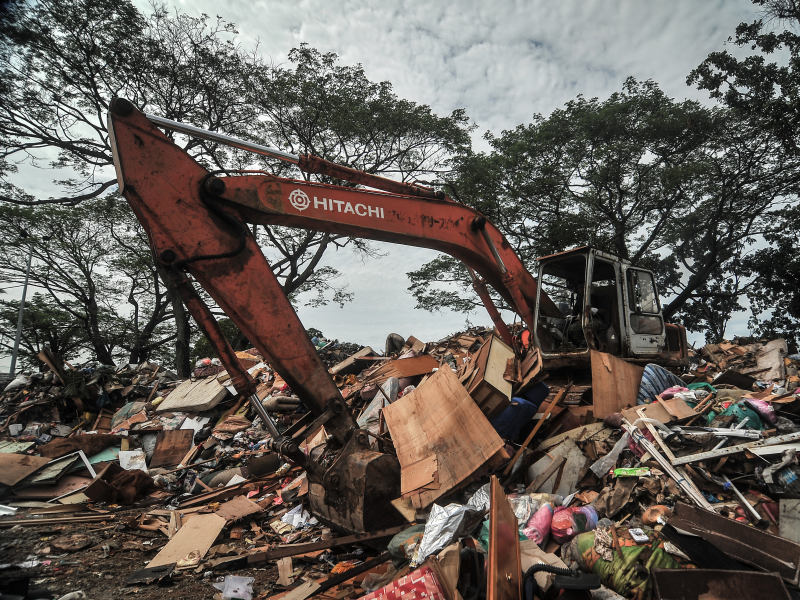
Less than half of Malaysians believe that climate change will impact their lives greatly, and less than 40% believe it will impact their lives a fair amount. Around 70% believe the worst of climate change can be mitigated with drastic change, but 19% believe what is currently happening is enough to prevent the worst.
By 2030, it's predicted that a quarter of Malaysia's population will be displaced due to climate change, and the country is already seeing up to 15% declines in crp production annually due to climate events.
BAHRAIN: Respondents from Bahrain responded with 46% believing climate change was mostly man-made, with 41% believing it was only partially attributed to human activity.
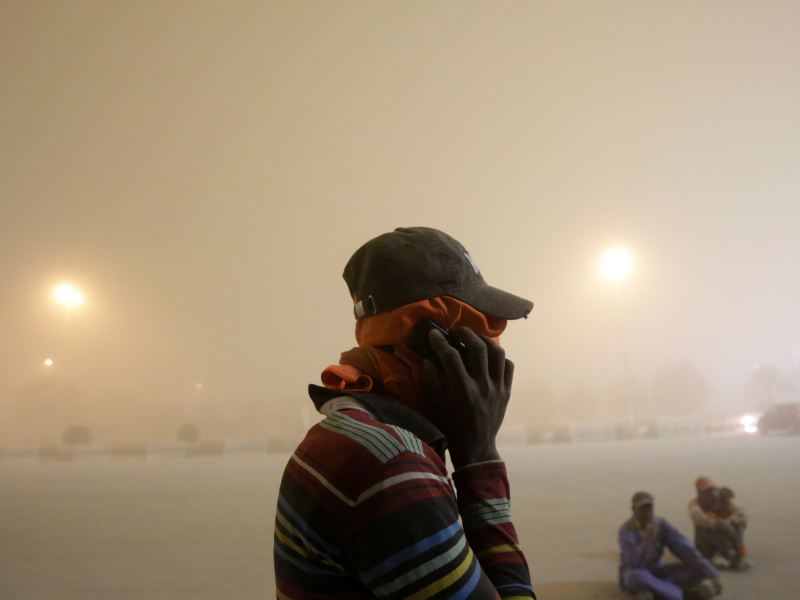
Over half of Bahrainian respondents believe climate change will have a great impact on their lives, and a third of respondents believed it would impact their lives a fair amount. About two-thirds of respondents believe that the worst of climate change can be avoided with drastic measures, but 16% believe what is happening now will do enough to prevent the worst.
Bahrain's water sector is facing threats due to climate change, including greater demand for water due to rising temperatures, sea level rise causing aquifers to become salinified, and intensified rainfall.
CHINA: Almost half of Chinese respondents believe humans have some responsibility for climate change — only 45% believe humans are the main cause.

About a quarter of respondents said that they will be drastically impacted personally by climate change, while half sai they'd be impacted a fair amount. Nearly 80% of Chinese survey respondents believe that the worst of climate change can still be mitigated by major policy change.
China has had pollution problems for years, but new studies show that heat waves and stagnant air as part of climate change will worsen conditions across the country. Airborne pollutants already cause over 1 million premature deaths in China annually.
AUSTRALIA: 44% of Australians believe climate change is mostly man-made, and around the same amount believe humans are only partially responsible.

Less than 30% of Australians responded that climate change would impact their lives greatly, with 36% responding that it would have a fair amount of impact on their lives. 61% responded that drastic policy change could mitigate the worst parts of climate change, while nearly 1 in 5 responded that the policy in place was enough to avoid the worst.
The first eight months of 2019 were the second warmest on record for mean temperature, and areas including New South Wales, southern and western Queensland, parts of northern and eastern Victoria, the east coast of Tasmania, the majority of South Australia and the Northern Territory, and most of the eastern half of Western Australia have recieved far less than average amounts of rainfall. Just one week into September, fires were banned in Queensland and parts of New South Wales due to catastrophic conditions predicted in the area that could lead to bush fires according to the Guardian.
OMAN: Around half of respondents from Oman believe climate change is somewhat impacted by human activity, but only 43% place the majority of blame on humans.
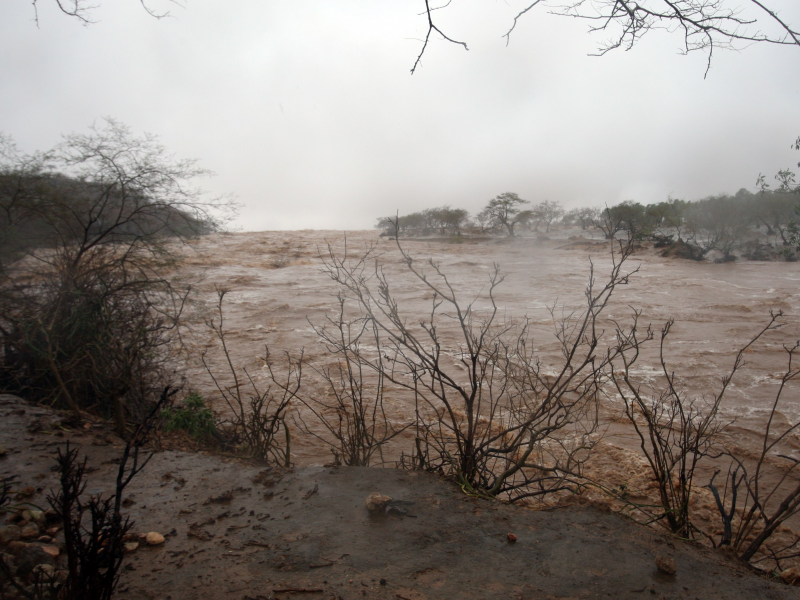
Close to half of Oman's respondents believe climate change will impact their lives greatly, with 36% believing it will impact their lives a fair amount. Around three-quarters of respondents think the worst impacts of climate change can be avoided with drastic changes to policy.
Oman experiences a strong monsoon season from May to September in the south, but also experiences periodic droughts and sand storms throughout the central region. The country has limited fresh water resources, and struggles with rising soil salinity.
EGYPT: 42% of Egyptian respondents blame humans for mostly causing climate change; 38% blame humans only partially.
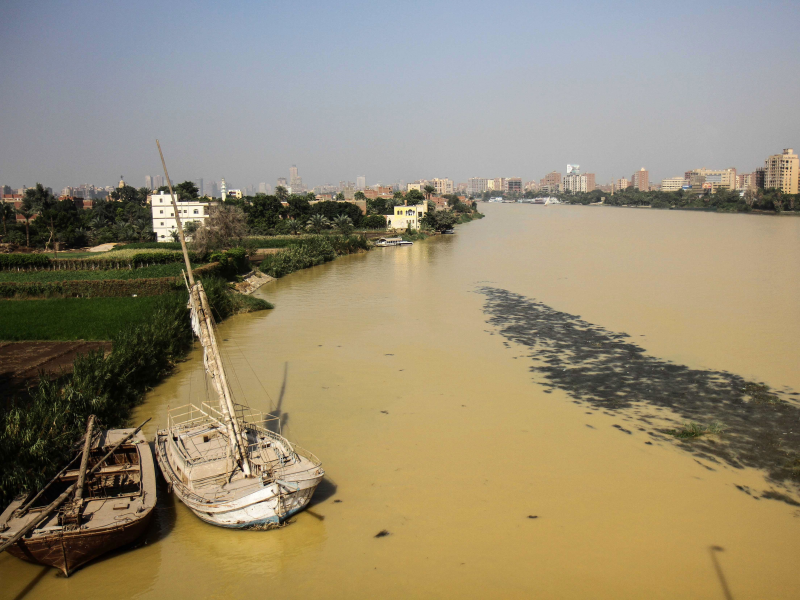
58% of Egyptians surveyed believe climate change will impact them greatly, while 27% believe it will only impact them a fair amount. 68% believe that the worst impacts can be mitigated with drastic changes to climate policy, but 12% believe it's too late to avoid them.
Rising sea levels and flooding pose serious issues to Egypt, especially in the Nile River Delta. Egypt already has a high poverty rates and rapidly growing population, which makes them especially vulnerable to the impacts of climate change, according to NPR.
DENMARK: Almost half of all surveyed Danes believe climate change can be partially attributed to human activity, while 2 in 5 believe it's mostly caused by human action.
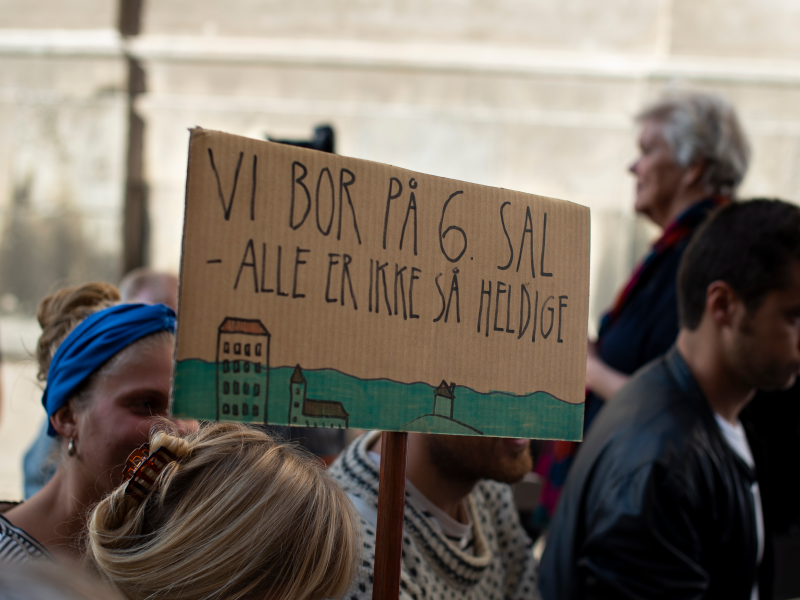
Only one in 10 Danes surveyed believe they will be impacted greatly by climate change - over a third say it will impact their lives a fair amount. Over half of Danish respondents believe that the worst of climate change can be avoided with drastic changes in policy, but 19% say the steps in place are enough.
Copenhagen, the capital of Denmark, has already cut it's emissions by 42% from 2005 levels and has a goal to be completely carbon neutral by 2025.
UNITED STATES: 38% of Americans surveyed believe climate change is caused mostly by human activity. 37% place only partial blame on humans, and 9% believe humans have nothing to do with it at all.
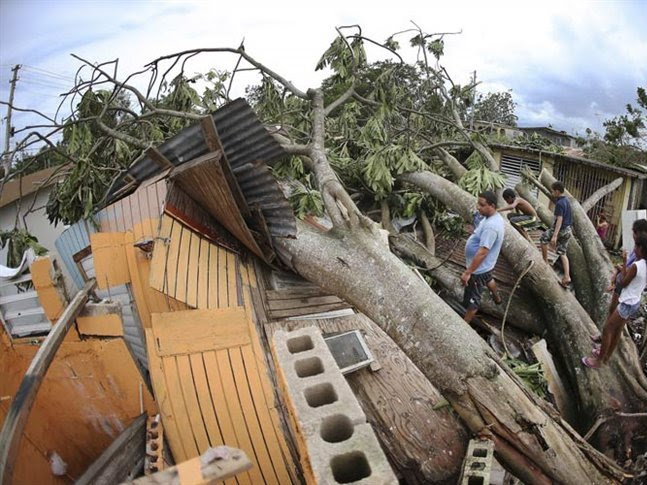
The highest percentage of people out of any surveyed country believe climate change is not happening, at 6%.
Less than a quarter of American respondents believe they personally will be impacted a great amount by climate change, and 31% believe they'll be impacted a fair amount. Half of Americans surveyed believe the worst of climate change can be avoided by a drastic change in policy steps - 15% believe the steps in place will be fine.
Climate change is already showing a serious impact in the US, whether it's extreme heat, increasingly strong storms, wildfires or flooding.
SWEDEN: About half of the respondents from Sweden believe climate change is caused partially by human activity, but only 36% assign humans most of the blame.
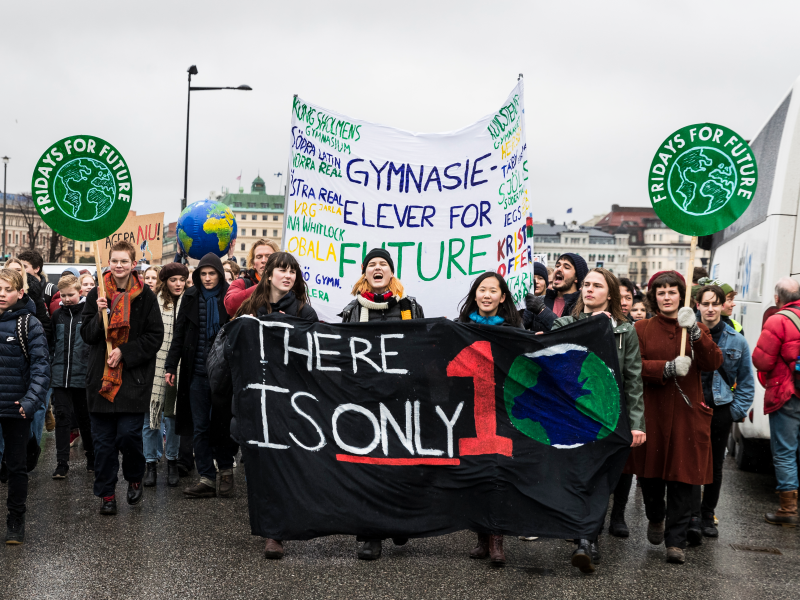
Only one in 10 Swedes believe climate change will impact their lives greatly, while 38% believe their lives will be impacted a fair amount. 55% of Swedish respondents think climate change can avoid it's worst outcomes with drastic change in steps, but 21% believe enough is already being done to avoid the most catastrophic effects.
Sweden's tallest mountain lost it's title last week due to climate change induced glacial melts.
SAUDI ARABIA: Around 35% of Saudi Arabians surveyed believe climate change is largely man-made, and a similar amount place some, but not all, blame on humans.
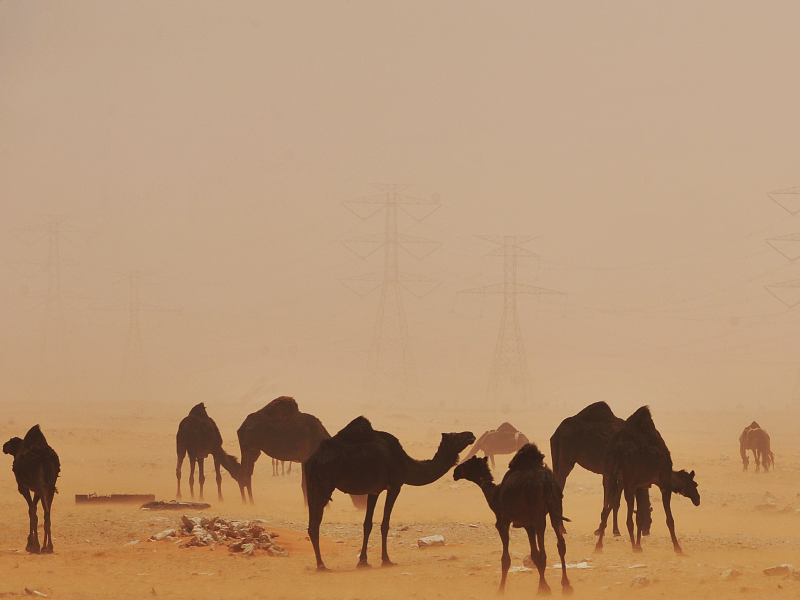
Two in five Saudi Arabians surveyed believe climate change will have a great deal of impact on their lives, with slightly fewer respondents believing it will have a fair amount of impact on their lives. Less than 60% believe the most catastrophic impacts of climate change can be mitigated by drastic changes in policy steps.
Saudi Arabia is plagued with intensely rising temperatures, and the peninsula is faced with rapid desertification. Saudi Aramco, owned by the Saudi royal family, has released over 40,000 metric tons of greenhouse gases between 1992 and 2017, according to The Intercept.
NORWAY: Less than half of Norwegians surveyed believe climate change is somewhat attributed to human action, and around a third believe humans are the main cause.
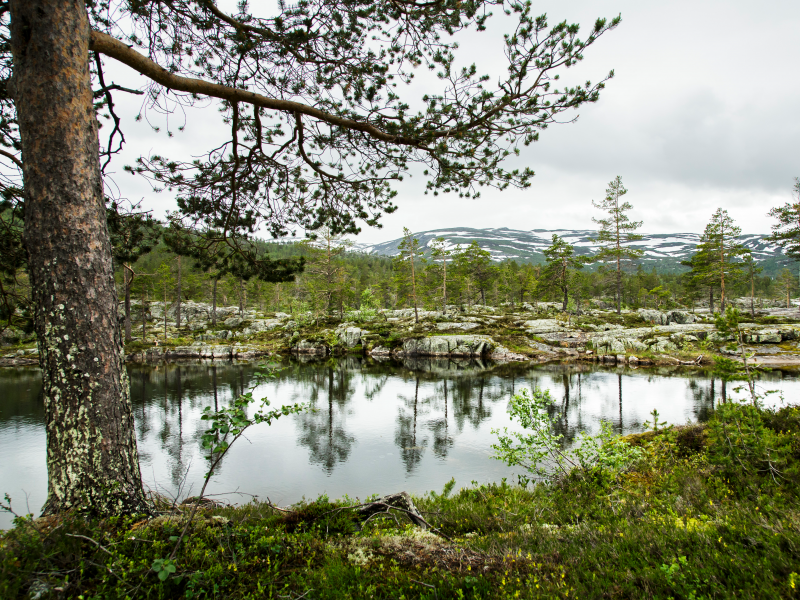
Only 12% of Norwegian respondents believe that climate change will impact their lives greatly - 35% believe there will be fair impacts. 57% think that the worst can be avoided by drastic changes in policy steps.
Norway is likely to be impacted by climate change in the form of increased rainfall and flooding. In the century leading up to 2014,rainfall has increased by 20% in the country.
